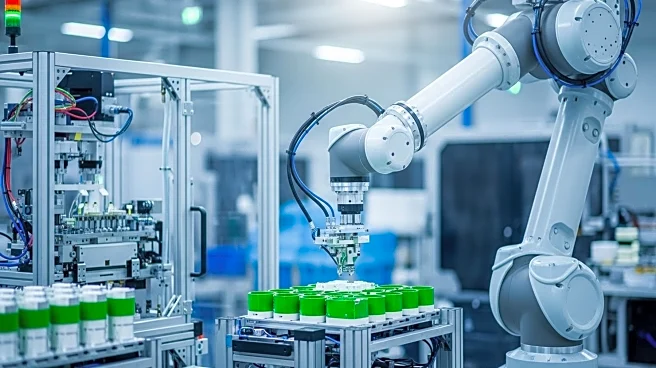What's Happening?
Simon Francis, group quality director at G&P, discusses how quality systems can reduce carbon emissions and waste in UK manufacturing. The UK government’s Advanced Manufacturing Sector Plan aims to position the country at the forefront of global competition and progress towards net zero targets. Quality management plays a critical role in decarbonizing supply chains by minimizing errors and resource consumption. In sectors like automotive and aerospace, quality systems reduce non-conformance and high-carbon logistics. Digital technologies like AI and IoT enable real-time quality monitoring and predictive analytics, supporting zero-defect manufacturing.
Why It's Important?
Quality management is a strategic tool for sustainable manufacturing, offering both financial and environmental benefits. By reducing scrap and rework, manufacturers can lower costs and cut energy usage. The UK automotive sector has already achieved significant reductions in CO2 emissions and water use through quality systems. As manufacturers pursue low-carbon strategies, quality management provides the technical capability and data-driven strategies needed for sustainable growth. The integration of digital technologies further enhances efficiency and sustainability, making quality management a key component of operational excellence.
What's Next?
The continued adoption of quality systems and digital technologies will drive further improvements in manufacturing sustainability. Manufacturers are likely to expand the use of AI, IoT, and virtual reality to enhance quality monitoring and predictive analytics. The focus on zero-defect manufacturing will support the UK’s net zero targets and strengthen its position in global markets. As quality management becomes more integrated into manufacturing processes, it will play a crucial role in achieving sustainable growth and reducing environmental impact.









